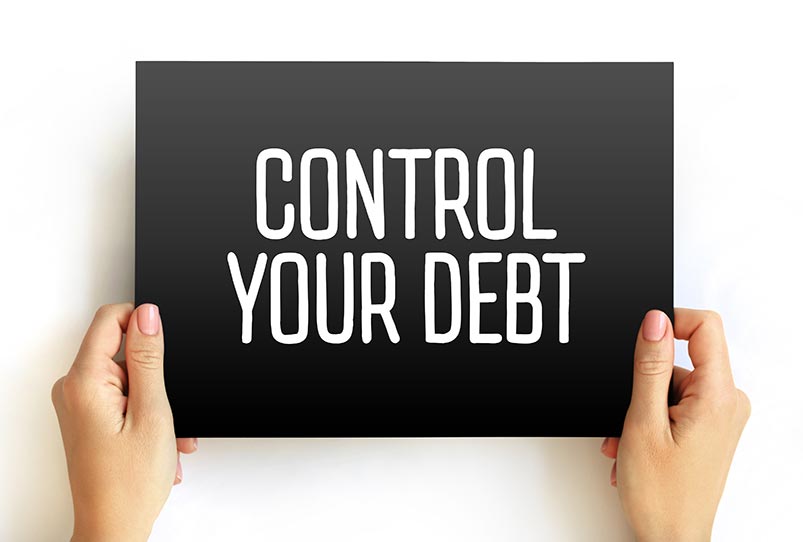Debt is part of most people’s financial life. But how do you avoid getting into too much debt? As a starting point, it may be wise to know how much debt is too much. The rule of thumb is that your annual debt payments should not exceed 20% of your annual take-home income, which excludes your house bond, which can be 30% of your take-home income on its own.
To avoid falling into debt, we need to be conscious about our spending habits, when to use debt, and when not. You can follow a few strategies to avoid letting your debt spiral out of control.
- Don’t buy it if you can’t afford it without a credit card. Credit cards tend to create the illusion that you can afford things you don’t have the money for. Instead, follow the rule that if you cannot pay for it in cash, you cannot afford to pay for it with your credit card.
- Have an emergency fund to fall back on. It is essential to have emergency savings available for those unforeseen cases that pop up at the worst time possible. The aim is to have 6-months of your salary saved up, but even if you struggle to reach that mark, any savings is better than no savings. Having some savings available will allow you to not fall into unnecessary and unplanned debt that may cost you more in the long run.
- Pay your credit card off as you go. The best way to control your spending is to pay your credit card balance monthly in full. If you use your credit card for everyday purchases, make sure to repay the spent amounts immediately to avoid the credit amount getting out of control and attracting interest.
- Reduce spending money on what you want and instead focus on what you need. Relook your budget and cut out unnecessary spending habits. You can improve your finances considerably if you spend your money wiser by firstly focusing on what you need to pay. Then look at what you want to spend your money on, and do it only if you can afford it without getting into debt.
- Budget! You can’t track where your money is going and make the necessary adjustments to your spending habits if you don’t have a budget. Knowing what you spend your money on will make it easier to understand which expenses to cut should it be necessary at any stage. Keep track of your monthly expenses by looking at your bank statements. You can use our budget templates and read our article on budgeting if you need help with budgeting.
- Pay your accounts on time or early to avoid penalties or interest. Paying your monthly bills on time will also help you establish good financial habits. It is also advantageous to help build a good credit record which will serve you well in the long run.
- Limit the number of cards you have. More than one credit card means more repayments and more interest. It also complicates your finances and creates the risk of losing track of your spending. If you can’t handle your credit responsibly, it will eventually lead to the need for debt reconciliation.
- In case of a pay increase, save or invest the extra money or use it to pay off any debt. Instead, continue living on your lower income until you have enough savings and control over your debt. You may even invest these extra funds to make your money grow and work for you.
With so many daily temptations, it takes focus and self-discipline to build the necessary habits to avoid getting overindebted. Knowing how to limit your spending and control your spending habits is vital to avoid getting lost in debt.

